Introduction
Throughout Hindu history, several remarkable women have exemplified the power of unwavering devotion, wisdom, and spiritual surrender. Whether through selfless service, divine love, or profound knowledge, these women have left an indelible mark on Hindu spirituality.
Each of these women, in their unique way, exemplifies the heights that devotion, love, and wisdom can reach, inspiring generations to walk the path of spiritual enlightenment.
Shabari
Shabari was a tribal woman who lived in the forests of the Dandakaranya region. From a young age, she had an intense longing to serve the divine. She left her home and sought refuge in the ashram of Sage Matanga, where she spent her days performing selfless service and spiritual practices. The sage assured her that one day, she would meet Lord Rama himself. Years passed, and her devotion only deepened. She would wake up every morning, clean the path leading to the ashram, and pluck sweet berries, waiting for the arrival of her Lord.
One day, her devotion bore fruit—Lord Rama arrived at her humble hut along with his brother, Lakshmana. Overcome with love, she offered him berries, tasting each one to ensure their sweetness. Though this act might have been seen as improper, Rama accepted them with joy, recognizing her pure devotion. Before leaving, he blessed her with ultimate liberation, promising her a place in his divine abode. Soon after, Shabari merged into the divine light of Lord Rama, attaining moksha.
Meerabai
Meerabai was born into the royal family of Merta in Rajasthan, but her heart belonged to Krishna from the moment she was a child. When she was just a little girl, she was gifted an idol of Lord Krishna, and from then on, her life became an offering to Him. Even after being married into the royal family of Mewar, her devotion never wavered. She would spend her time composing bhajans, dancing in ecstasy, and visiting temples, much to the dismay of the royal court.
Her devotion was tested repeatedly—she faced accusations, threats, and even attempts on her life. However, each time, Lord Krishna protected her. Poison turned into nectar, and danger transformed into divine grace. Finally, leaving behind the palace and all worldly ties, she traveled to Vrindavan and later to Dwarka, fully surrendering herself to her beloved Lord. One fateful day, as she sang in front of Krishna’s idol in the Dwarkadhish Temple, she walked into the sanctum and disappeared, merging into the divine.
Gargi
Gargi was one of the greatest female sages of the Vedic period. Born into a family of learned scholars, she was naturally drawn to spiritual wisdom. She mastered the Vedas and Upanishads, becoming known for her sharp intellect and deep understanding of Brahman—the supreme reality. Unlike most women of her time, Gargi participated in philosophical debates with renowned sages and scholars.
Her most famous debate was with Sage Yajnavalkya during King Janaka’s grand assembly of learned scholars. She questioned him on the nature of existence, the source of creation, and the ultimate truth. The depth of her inquiries astonished the assembly. Though Yajnavalkyaultimately won the debate, he acknowledged her extraordinary intellect. Gargi continued her spiritual pursuits, living a life of deep contemplation and devotion to the formless Brahman. She remained one of the few women in history to attain the status of a revered Rishi, guiding seekers toward enlightenment.
Ladubai
Ladubai was the younger of Dada Khachar’s two sisters. She was married to Khoda Dhadhalof Botad but was allowed to return home and worship God for the rest of her life. She was extremely passionate and competitive with her sister, Jivubai, about her level of bhakti. They often competed in celebrating festivals and feeding Bhagwan Swaminarayan. She personally cared for the buffalo whose milk was offered to Bhagwan Swaminarayan. Her devotion and unwavering faith in Bhagwan Swaminarayan made her one of the greatest devotees of His time.
Jivubai
Jivubai was the elder of Dada Khachar’s two sisters. She was the first of Abhel Kachar’schildren to have survived and was aptly named Jivu, or alive. When she was old enough to get married, Abhel Khachar searched for a worthy groom, but she refused. Despite her refusal, Abhel Khchar decided to get her married to Hathiya Patgar of Kundal. After their wedding, she sought his permission to remain a celibate, return home, and worship God for the rest of her life. He obliged. Upon returning, Jivubai spent her time in the service of Bhagwan Swaminarayan and the large number of devotees that came to Dada’s darbar. Along with her devotion to Bhagwan Swaminarayan, Jivubai was spiritually enlightened as well. It was her spiritual knowledge that convinved the royal poet Ladudanji to accept diksha from Bhagwan Swaminarayan and become the now famous Brahmanand Swami.
Vajiba of Vijaypur
Vajiba was the ideal example of conviction and faith in God. She learned about the mahimaof Bhagwan Swaminarayan through Ramdas Swami. Despite not having physical darshan of Bhagwan Swaminarayan, through Ramdas Swami’s talks, she developed unflinching faith and devotion in Him. A few years later, Bhagwan Swaminarayan came to Vijaypur with Mulji Brahmachari. He asked the villagers for a place to stay, and they pointed Him towards Vajiba’s house. Bhagwan Swaminarayan walked to Vajiba’s house and knocked on her door. When she opended the door, He asked her for a place to stay. She was convinced that this man was a mendicant and refused. Bhgwan Swaminarayan decided to test her faith and began to speak ill of Himself. He continued to assess her faith throughout the night by nagging her for different items and speaking disrespectfully about Swaminarayan, but Vajibai did not flinch. She serves as an ideal example of pativrata bhakti in the sampraday.
Rajbai
Rajbai was a true celibate. She was married against her wishes. When her husband approached her on their wedding night, he saw a lion before he could touch her. He immediately realized that she was a celibate and gave her permission to go to Gadhada to worship God. In Gadhada, she would stay ten yards away from men and wear thick clothes. She spent her days sitting in meditation and helping with chores around the darbar. After she passed away, they tried to cremate her body in Laxmi Vadi, but Agnidev, the Goddess of Fire, would not touch her body because she was a celibate. Bhagwan Swaminarayan informed Agni Dev that since the atma has left, it was acceptable to burn the body. Today, there is a mandir on that very spot.
Kushalkuvarba
Kushalkuvarba was the Queen of Dharampur. She was extremely religious and spent her time listening to the discourses of the Bhagavata Purana. She came to know about Bhagwan Swaminarayan when one His paramhansas visited her court. Unlike the other mendicants, this renunciant would not let women touch his feet or serve him. She realized that He was different, and after learning about his celibacy vows, she inquired further about Bhagwan Swaminarayan. In due time, she invited Bhagwan Swaminarayan and received Him with grandeur. Elephants, chariots, and horses marked the main road of the kingdom to welcome Bhagwan Swaminarayan. Her love convinced Bhagwan Swaminarayan to stay for six months. She arranged for the devotees to travel from Kathiawad to Dharampur and organized festivals and feasts. When Bhagwan Swaminarayan was preparing to leave Dharampur, Kushalkuvarba became frantic. He assured her that He would take her to Akshardham in a short while. Fifteen days after Bhagwan Swaminarayan left Dharmapur, Kushalkuvarbapassed away to Akshardham.
Check out our social media channels: https://linktr.ee/thesatsanglife
Check out the BAPS Website: https://www.baps.org/



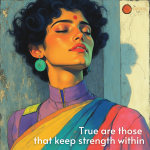


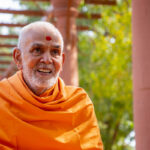

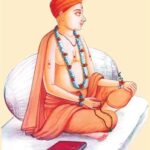
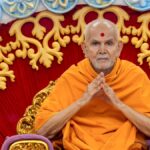
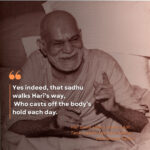
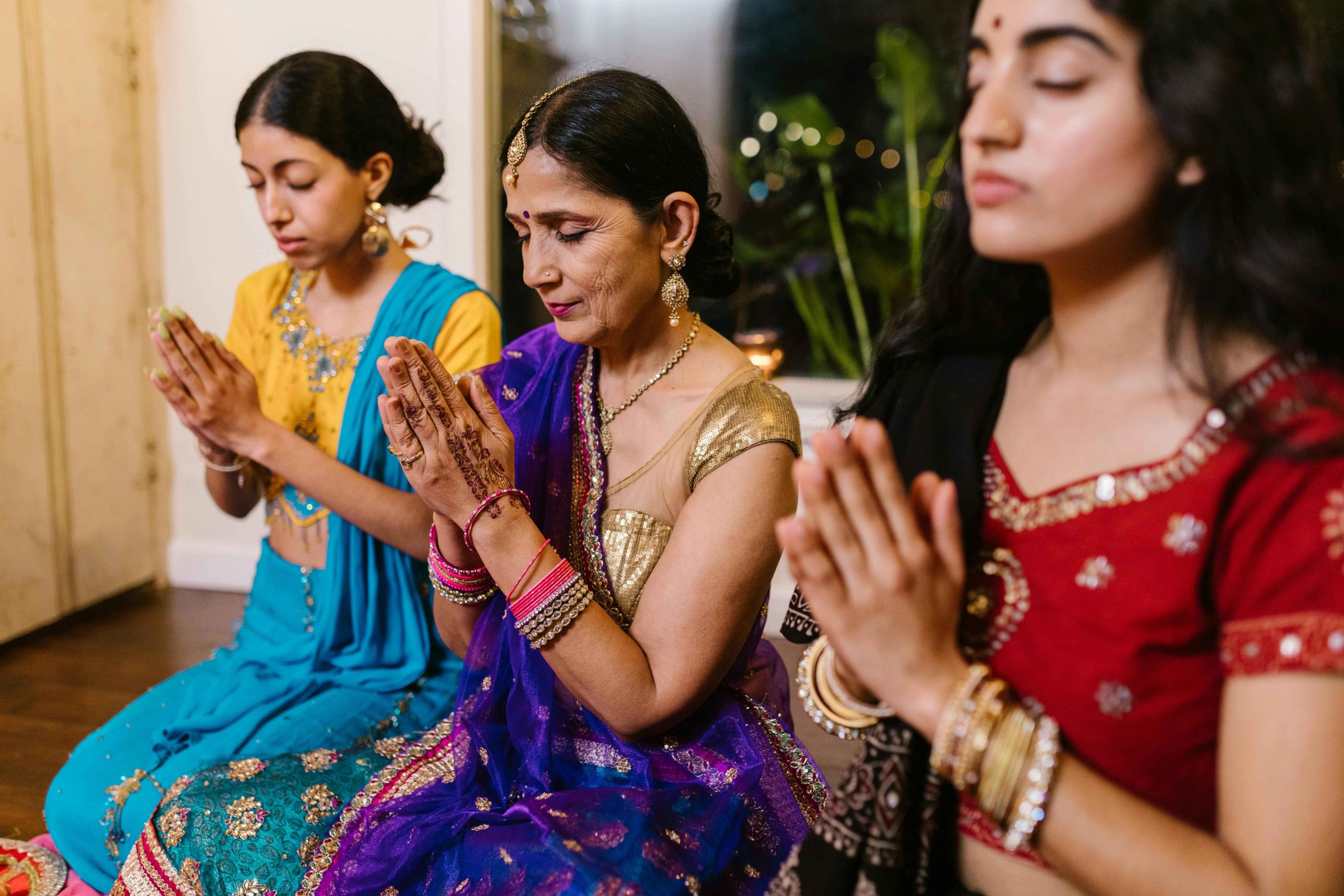



+ There are no comments
Add yours